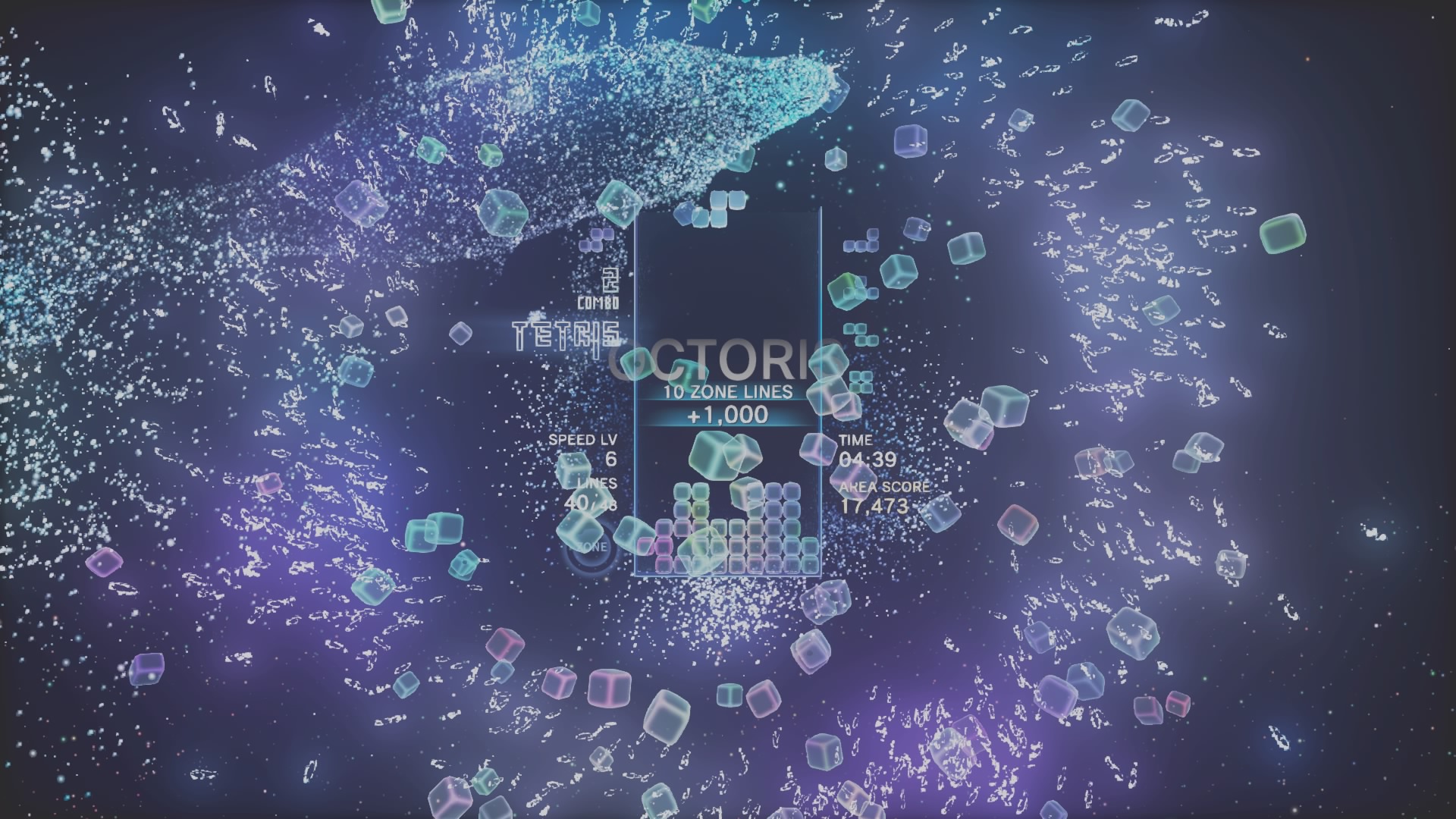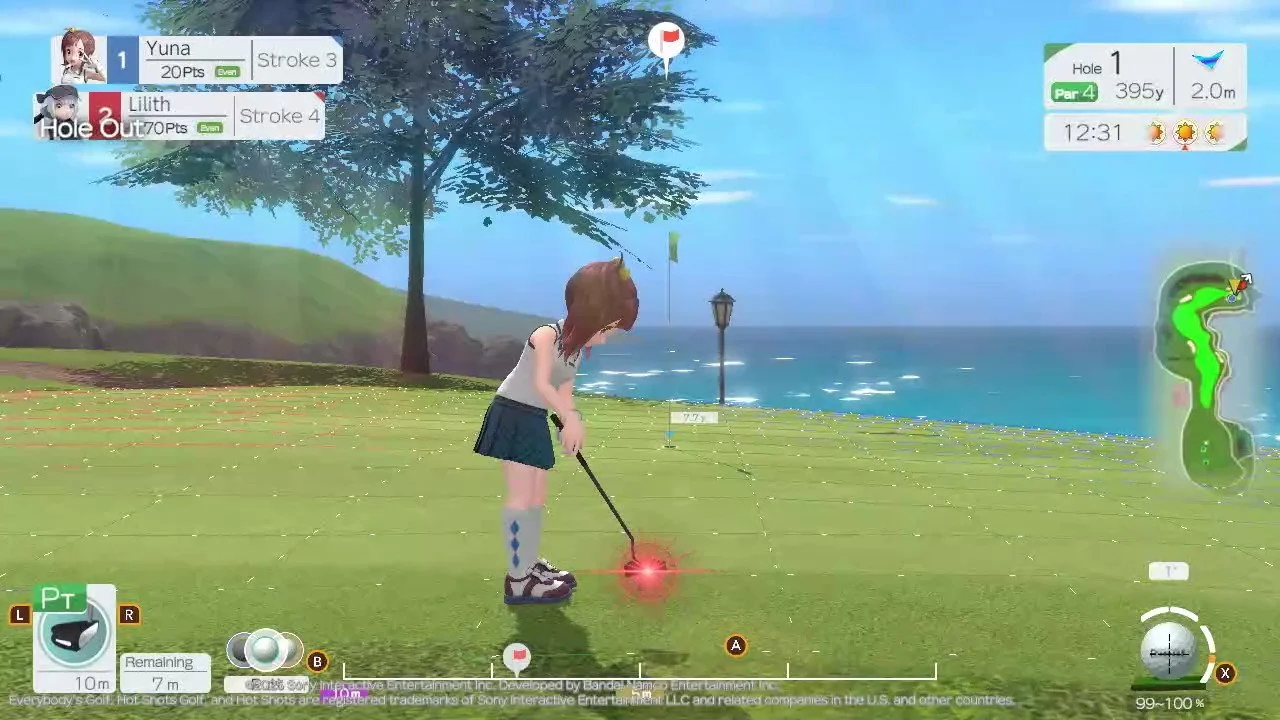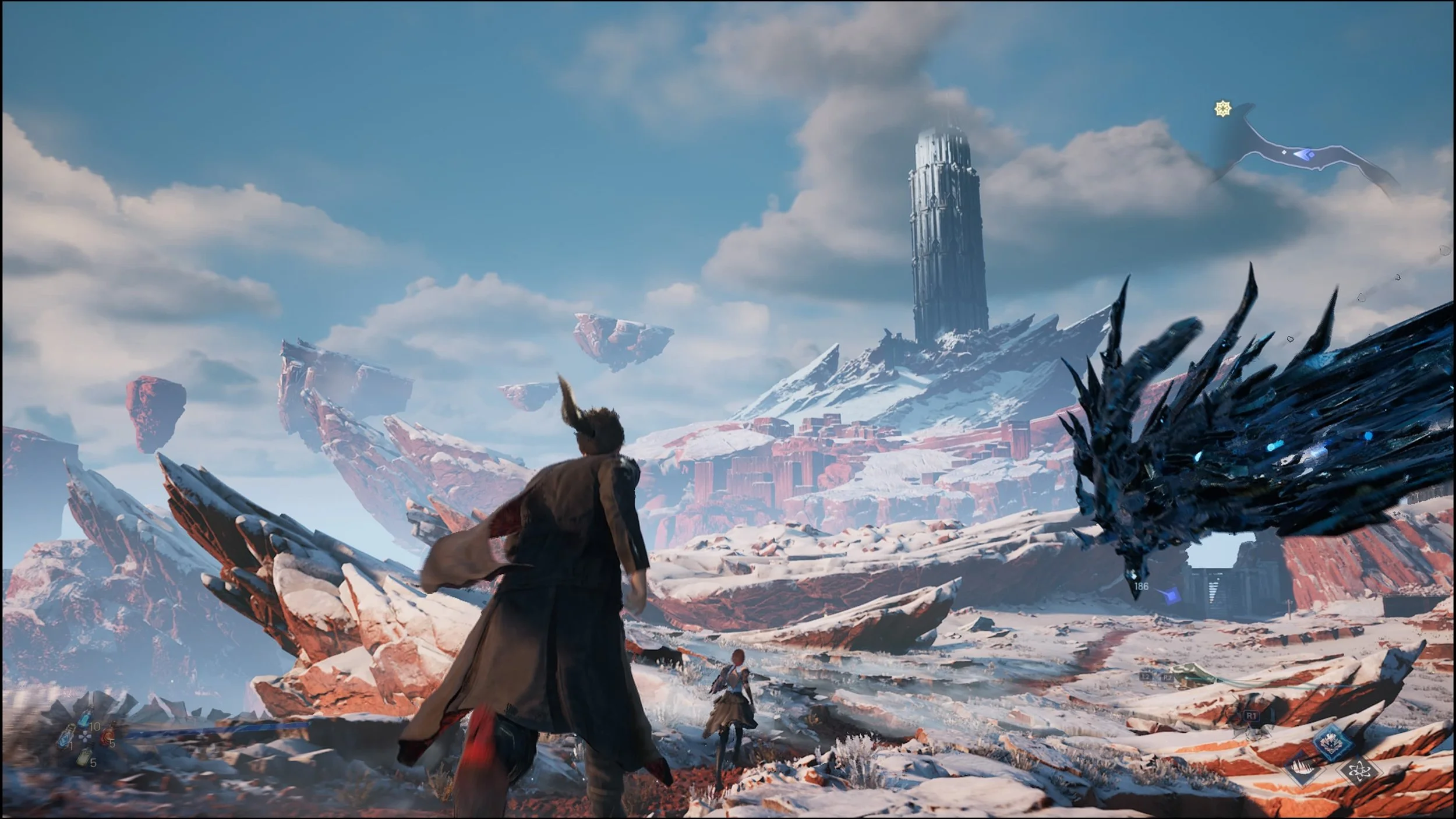Tetris Effect Weekend Demo Impressions
/World War III could have broken out last weekend and I wouldn’t have known it. I was too busy playing the timed demo for famed rhythm game maestro Tetsuya Mizuguchi’s (Rez, Lumines, Child of Eden, Space Channel 5) latest combination rhythm title, puzzle game, and light-show, Tetris Effect, a one-of-a-kind, PS-VR-compatible experience that latched onto me like a spinning L-shape Tetrimino and never let go until I realized it was already Tuesday and I had been keeping my PS4 on for days so that I wouldn’t lose access to the demo before the full game releases on November 9th.
Of course, I’m practically the target audience for this game, so your mileage may vary, and you’ll probably know from the trailer alone whether you’ll be a willing subject to Tetris Effect’s spell. Suffice it to say that Tetris Effect is the Tetris experience I’ve been waiting for my whole life, and that’s no small praise from me - I’m what you might call an old-school Tetris fanatic. I’m old enough to have grown up with it on the original Game Boy, and it was my gateway drug to titles such as Tetris Attack/Pokemon Puzzle League (based on Nintendo’s own Panel de Pon).
Growing up, I’d always thought I was the best Tetris player around until, speculating a Tetris Grand Master showdown at Anime Expo ’06, I saw just how far and how accurately the pros can take their skills and was promptly humbled. Around 2007 or so, I felt I’d had my fill of Tetris, and after my disappointment at the 7th console generation’s meager Tetris offerings, I’m not ashamed to say I turned to Puzzle Quest to get my fill of block-matching action.
So yes, it’s been over a decade since I dove into a Tetris title full hog, but it isn’t for lack of trying - up until now, the best Tetris experience I’ve played was in the Nintendo-published, feature-filled Tetris DS, which brought my DS’ battery to the brink of death many a night. I’ve even put a good amount of time into the N64’s inspired 3D take on the classic, Tetrisphere, where you’d break down an entire sphere’s worth of blocks by matching Tetriminos to the beat of trashy Euro-synth-pop, which was more distracting than enchanting, and often at odds with the trancelike state that Tetris demands.
That observation brings me back to the point, which is that Tetris Effect, with its many musical elements, including a (so far) killer soundtrack, on-beat sound effects to match every block movement and rotation, and an evolving tempo that matches the speed of your gameplay and helps you to keep time and continue to rotate blocks even after they’ve fallen. This is the first Tetris game to really focus on the rhythm of the gameplay, which is of course the meat of the whole experience.
Never before had I really paid attention to the rhythm of a Tetris session, which, as it turns out, is closer to the point-counterpoint flow of improvisational jazz than I ever might have guessed. I’ve always thought of Tetris as an intensely cerebral experience, where the goal, like the Soviet regime Tetris creator Alexey Pajitnov built his masterpiece under, was to attempt to continually mesh disparate units together to form a cohesive whole, with the end result (collapse) being a sly or perhaps unwitting commentary on the inevitable end of large-scale collectivist systems. Maybe one of his higher-ups at the Academy of Science of the Soviet Union in Moscow got wise to this and that’s why he wasn’t allowed to make a profit off of Tetris for the first ten years of its existence, but I digress.
If anyone understands rhythm, it’s Mizuguchi, whose musical titles have bent and broken the boundaries between games and art (all of his titles), between gaming and essentially jamming on a huge soundboard (Rez, Child of Eden), and between puzzle and rhythm games (Lumines). He had been trying to make a Tetris title for years, experimenting with many different prototypes in between, and his work seems to have finally paid off, with not just his trademark visual and aural flair, but a new mechanic that, much like the revamped levels in Pac-Man Championship Edition, doesn’t so much revolutionize Tetris as it does take it to its next logical premise.
Anyone who’s really fallen deeply into Tetris is familiar with the Zone, that glowing place gamers go when they’re lost in concentration and poised on the edge of an epic win. In Tetris Effect, the Zone mechanic is a state achieved by building up your score to fill up a gauge (chains of Tetrises fill it much faster than regular old line clears). Once you trigger it, time stops and you’re free to drop as many blocks wherever you want them… for a little bit, at least, since you’ve got a limited amount of time and cleared lines don’t disappear from the screen (nor do they affect your line total, allowing you to pump up the score without pushing closer to the goal). If you’re some sort of savant or master, you can even clear sixteen lines at a time (Decahexatris). Speed and accuracy are equally important in this crucial mode, during which the world melts away and you live or die based upon how well you manage the board in that short period of time (you can also pop the Zone early). My personal maximum is thirteen lines cleared, so I’ve still got a ways to go.
The Zone mechanic not only puts a nice big spin on the scoring system, it provides a great sense of satisfaction and relief whenever you stop the clock to pull off game-saving plays, not to mention the existence of the Zone makes it easier for less-experienced players to come back from difficult situations.
The demo was pretty robust with content. In addition to the Journey campaign, where you tackle between three and four songs/levels in order and progress through a map listing 27 songs, there’s the Effect modes, which consist of a plethora of different scenarios, with some of them apparently hardly resembling Tetris. These bonus gameplay modes, ‘Relax’, ‘Focus’, ‘Adventure’, and ‘Classic’, apparently provide diverse challenges and ways to play. In the demo, we’re only shown the Classic Marathon mode, where you can either go for the high score while attempting to clear 150 lines (the speed increases every ten cleared lines), or tackle a level until you can’t humanly deal with it, speed-wise, in Endless mode. Similarly to Journey, there are also multiple difficulty levels here (Beginner, Normal, and Expert), and I’m amazed at how much time I spent trying to consistently score good numbers. There are also weekly ‘Rituals’, which are fun online co-operative community challenges.
The first of the three main levels reminds me of Child of Eden, with the uplifting song Connected (Yours Forever) from the trailer. The second song has a synthy Rez vibe and is probably my favorite. The third features this sick tribal chanting that gets your heart pounding and is fitting for high-speed play. All three levels have their charms, including a fourth bonus level in Endless mode that consisted of just a series of vocalists singing along with your movements, a capella.
If the rest of the tracks and gameplay modes can deliver on the promise here, then this will be a fantastic game indeed. It’s already got my vote - apparently there will be multiple ways to play in each of the Effect modes, so if rhythmic Tetris sounds like your idea of a relaxing, challenging, or trippy afternoon, then Tetris Effect is an easy choice. I pre-ordered it faster than you can say ‘Dodecaxatris’. My only regret is that I don’t own a PS-VR and didn’t get a chance to experience Tetris Effect as it was intended.
Tetris Effect was released for the PS4 and PS-VR on November 9.
















SEGA and Ryu Ga Gotoku Studios put a ton of love and care into Yakuza Kiwami 2, and it runs flawlessly on Switch 2. If you’re like me and itching for a reason to take a plunge into the Yakuza universe, there’s no better time than the present.